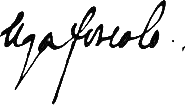Ugo Foscolo
Ugo Foscolo (Italian pronunciation: [ˈuːɡo ˈfoskolo]; 6 February 1778 – 10 September 1827), born Niccolò Foscolo ([nikkoˈlɔ ˈfoskolo]), was a Greek-Italian poet, writer, playwright, and revolutionary.[1][2]
Niccolò Ugo Foscolo | |
|---|---|
 Painting by François-Xavier Fabre, 1813 | |
| Born | 6 February 1778 Zakynthos (Zante), Ionian Islands, Republic of Venice, now Greece |
| Died | 10 September 1827 (aged 49) Turnham Green, London, England |
| Resting place | Santa Croce, Florence |
| Pen name | Didimo Chierico |
| Occupation | Poet, writer, soldier |
| Language | Italian |
| Nationality | Venetian-Greek |
| Citizenship | Venetian (1778–1799), Italian (until 1814), British (1814–1827) |
| Period | 1796–1827 |
| Genres | Lyrical poetry, epistolary novel, literary critic |
| Literary movement | Neoclassicism, Pre-Romanticism |
| Partners |
|
| Children | Mary "Floriana" Hamilton-Foscolo (from Fanny Hamilton) |
| Signature |  |
Foscolo was a Neoclassicist, Pre-Romantic author.[1]
Early life
Foscolo was born on 6 February 1778 in Zakynthos (Zante), Republic of Venice (now Greece), from the Venetian doctor Andrea Foscolo and the Greek Diamantina Spathis.[1] His birth name was "Niccolò", just like his paternal grandfather's (his father's father), but he wanted to be called "Ugo" instead.[1]
Works
Poetry
- Ai novelli repubblicani, ode (1797)
- A Bonaparte liberatore [To Bonaparte the liberator], ode (1797)
- A Luigia Pallavicini caduta da cavallo [To Luigia Pallavicini fallen from a horse], ode (1800)
- All'amica risanata [To the healed (female) friend], ode (1802)
- Non son chi fui, perì di noi gran parte, sonnet (1802)
- Che stai?, sonnet (1802)
- Te nudrice alle Muse, sonnet (1802)
- E tu ne' carmi avrai perenne vita, sonnet (1802)
- Perché taccia il rumor di mia catena, sonnet (1802)
- Così gl'interi giorni in lungo incerto, sonnet (1802)
- Meritamente, però ch'io potei, sonnet (1802)
- Solcata ho fronte, sonnet (1802)
- Alla sera [To the night (evening)], sonnet (1803)
- A Zacinto [To Zakinthos], sonnet (1803)
- Alla Musa [To the Muse], sonnet (1803)
- In morte del fratello Giovanni [In death of brother John], sonnet (1803)
- Dei Sepolcri [Of the Sepulchres], carmen (1807)
- Delle Grazie [Of the Graces], short poem (1803–1827, unfinished)
Novels
- Sesto tomo dell'io (1799–1801)
- Ultime lettere di Jacopo Ortis [The last letters of Jacopo Ortis] (1802)
Plays
- Tieste [Thyestes] (1797)
- Ajace [Ajax] (1811)
- Ricciarda (1813)
Ugo Foscolo Media
Dei Sepolcri, 1809
Blue plaque in Edwardes Square in west London
His now-empty tomb in the churchyard of St Nicholas Church, Chiswick
References
- ↑ 1.0 1.1 1.2 1.3 Scotti, Mario (1997). "FOSCOLO, Ugo". Dizionario Biografico degli Italiani, Volume 49: Forino–Francesco da Serino (in Italian). Rome: Istituto dell'Enciclopedia Italiana. ISBN 978-8-81200032-6. Retrieved 5 July 2024.
{{cite book}}: CS1 maint: unrecognized language (link) - ↑ "Ugo Foscolo". Encyclopædia Britannica. 4 March 2024. Archived from the original on 19 March 2024. Retrieved 5 July 2024.
Other websites
| Italian Wikisource has original writing related to this article: |
| Wikimedia Commons has media related to Lua error in Module:Commons_link at line 62: attempt to index field 'wikibase' (a nil value).. |
- Fóscolo, Ugo at Treccani (in Italian)
- FOSCOLO, Ugo on Dizionario Biografico degli Italiani (1997) (in Italian)
- Foscolo, Ugo on Enciclopedia dei ragazzi (2005) (in Italian)
- Foscolo, Ugo on Enciclopedia dell'Italiano (2010) (in Italian)
- Foscolo, Ugo on Enciclopedia machiavelliana (2014) (in Italian)
- Ugo Foscolo at Encyclopædia Britannica


